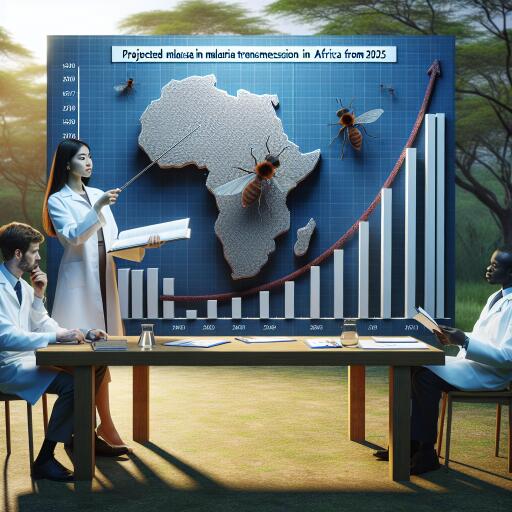
How Climate Change Could Lead to Reduced Malaria Transmission in Africa Beyond 2025
Recent research predicts an intriguing consequence of climate change: a potential decline in the zones across Africa conducive to malaria transmission starting in 2025. Malaria, a disease heavily influenced by climate factors, was responsible for 619,000 fatalities in 2021 amid more than 247 million cases worldwide.
Despite the considerable challenge malaria poses to public health, efforts to combat the disease have experienced setbacks in recent years. This downshift, attributed to diminished global funding for malaria prevention, complicates the battle against this pervasive killer. The essential task of understanding the dynamics of malaria transmission has thereby grown in importance, especially in the context of changing environmental conditions.
A study recently disclosed in the journal Science sheds light on how climate change might alter the landscape of malaria prevalence in Africa. Researchers harnessed global hydrological models to project future scenarios of malaria transmission. Their findings suggest a nuanced trajectory: a brief increase in susceptible areas until 2025, followed by a prolonged phase of decline throughout the century.
This transition is attributed to modifications in surface water availability and temperature fluctuations, elements critical to the habitat of malaria’s vectors. Crucially, while certain regions may see an uptick in transmission potential in the short term, a more significant decrease in overall transmission suitability is anticipated over the long haul.
However, the picture that emerges from this research is far from simple. Malaria transmission dynamics are inherently complex, shaped by a multitude of factors beyond just climatic shifts. The anticipated reduction in malaria risk, although ostensibly beneficial, could concurrently herald decreased water availability and heightened susceptibility to dengue fever—a trade-off that underscores the intricate balance within ecosystems.
The study’s insights reveal how alterations in surface water dynamics can intricately affect malaria transmission risks across the African continent. This knowledge comes courtesy of an extensive global research initiative that has refined estimates of climate change’s impact on hydrological flows.
Delving deeper, the investigation provides a sophisticated understanding of future regions at risk, yielding a granular perspective on how malaria susceptibility may evolve. The aim is to leverage this enhanced comprehension towards fine-tuning intervention strategies, adapting them to local conditions with greater precision. This approach is especially crucial in the context of limited health resources, allowing for more strategic allocation and implementation of preventative measures.
As the world braces for the broader ramifications of climate change, the fight against malaria in Africa might find unexpected allies in the shifts and sways of our changing planet. The prospect of utilizing advanced hydrological insights to preempt and mitigate malaria transmission represents a forward-thinking stride towards safeguarding public health in the face of environmental change.





Leave a Reply